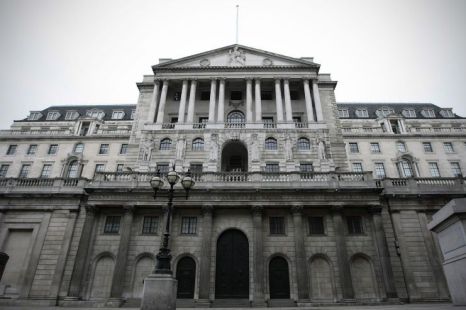
This article was last updated on April 16, 2022
Canada: ![]() Oye! Times readers Get FREE $30 to spend on Amazon, Walmart…
Oye! Times readers Get FREE $30 to spend on Amazon, Walmart…
USA: ![]() Oye! Times readers Get FREE $30 to spend on Amazon, Walmart…
Oye! Times readers Get FREE $30 to spend on Amazon, Walmart…
 Economists get surprised by a sudden drop in inflation rate to 2.8 percent on the Consumer Prices Index in May, from 3 per cent in April, as they had not expected it to change.
Economists get surprised by a sudden drop in inflation rate to 2.8 percent on the Consumer Prices Index in May, from 3 per cent in April, as they had not expected it to change.
Inflation has fallen from 5.2% last September due to the diminishing impact of the VAT rise in 2011 and falling energy, food and commodity prices.
The fall in inflation during May was unexpected. However, analysts have predicted price rises were likely to slow further in the coming months.
George Buckley at Deutsche Bank has said: “Expect further falls in inflation as energy bills rise less over the summer versus last year.”
Inflation also fell on the Retail Prices Index (RPI) measure, which includes housing costs, fell to 3.1% from 3.5% in April.
According to the latest figures released by the Office for National Statistics (ONS), inflation is now at its lowest level for two and a half years, although it is still above the government target of 2 percent.
The latest ONS figures follow a 4.5p fall in the average cost of a litre of petrol to 137.1p, between April and May. Prices dropped at the pumps after the cost of oil fell in the face of pressures in the global economy. Oil prices have continued to fall and now stand at around $95 a barrel for Brent crude.
A drop in the cost of food and non-alcoholic drinks also contributed to ease inflation. The price of grapes, bananas, peaches, nectarines, and vegetables all reduced during the month. The upward pressures on inflation in May included higher sea and air fares.
Economists are now expecting the Bank of England to launch another round of quantitative easing to boost the U.K. economy, after its monetary policy committee plans to meet on July 5. Previously, the Bank has shown unwillingness to continue with its programme of increasing the money supply in case it caused inflation to increase. Analysts are now suggesting that the asset purchase programme could be boosted from £325 billion to £450 billion. This would provide a supportive edge to the manufacturing sector and could help the economy escape recession.
It entered a technical recession in the first quarter of 2012, when GDP declined by 0.2 percent, following a 0.3 percent fall in the final quarter of 2011.
Article viewed on Oye! Times at www.oyetimes.com.

Be the first to comment